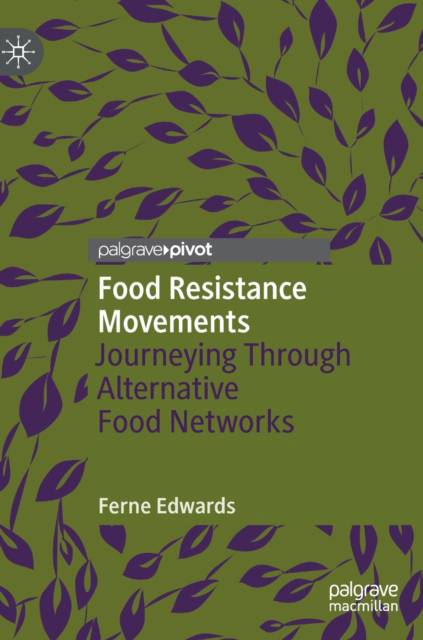
- Afhalen na 1 uur in een winkel met voorraad
- Gratis thuislevering in België vanaf € 30
- Ruim aanbod met 7 miljoen producten
- Afhalen na 1 uur in een winkel met voorraad
- Gratis thuislevering in België vanaf € 30
- Ruim aanbod met 7 miljoen producten
Zoeken
€ 76,45
+ 152 punten
Omschrijving
This book examines food resistance movements as a form of alternative food network, charting the author's journey as a cultural anthropologist through three food resistance movements.
In Australia, freegans' consumption of 'garbage' in the food waste movement of the early 2000s reveals the extent of food going to waste from commercial sources while people go hungry. In contrast, Venezuela's food sovereignty movement is part of a national transition from a capitalist to socialist economy, highlighting processes of decentralisation, collectivisation, and government-grassroots' coalitions. The study of autonomous spaces in Catalonia illuminates how food sharing can enable people to live their politics, as well as the centrality of issues around urban governance, consumption, technology and use of space to food resistance efforts. This engaging volume brings an important and engaging contribution to current discussions around the transition to just and sustainable food systems.
In Australia, freegans' consumption of 'garbage' in the food waste movement of the early 2000s reveals the extent of food going to waste from commercial sources while people go hungry. In contrast, Venezuela's food sovereignty movement is part of a national transition from a capitalist to socialist economy, highlighting processes of decentralisation, collectivisation, and government-grassroots' coalitions. The study of autonomous spaces in Catalonia illuminates how food sharing can enable people to live their politics, as well as the centrality of issues around urban governance, consumption, technology and use of space to food resistance efforts. This engaging volume brings an important and engaging contribution to current discussions around the transition to just and sustainable food systems.
Specificaties
Betrokkenen
- Auteur(s):
- Uitgeverij:
Inhoud
- Aantal bladzijden:
- 158
- Taal:
- Engels
- Reeks:
Eigenschappen
- Productcode (EAN):
- 9789811957949
- Verschijningsdatum:
- 5/01/2023
- Uitvoering:
- Hardcover
- Formaat:
- Genaaid
- Afmetingen:
- 148 mm x 210 mm
- Gewicht:
- 371 g

Alleen bij Standaard Boekhandel
+ 152 punten op je klantenkaart van Standaard Boekhandel
Beoordelingen
We publiceren alleen reviews die voldoen aan de voorwaarden voor reviews. Bekijk onze voorwaarden voor reviews.











